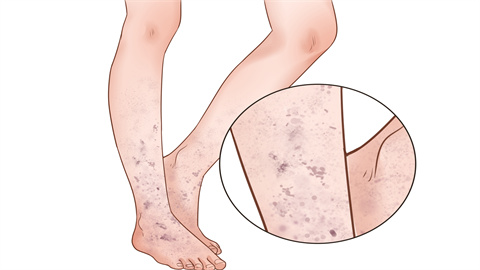Is it necessary to treat telangiectasia?
Generally speaking, whether telangiectasia requires treatment depends on the severity of the condition, symptom presentation, and its impact on the patient's quality of life. If discomfort occurs, timely medical consultation is recommended. Detailed analysis is as follows:

If telangiectasia is mild, presenting only as a small number of fine red blood vessels localized on the skin, without symptoms such as itching, stinging, or burning sensations, and does not cause noticeable cosmetic concerns or affect daily social interactions and psychological well-being, specific treatment is usually unnecessary. Skin stability can be maintained through routine skincare, and it typically does not pose further health risks.
If telangiectasia is severe, characterized by numerous visible blood vessels widely distributed across the skin, accompanied by significant skin sensitivity, burning or stinging sensations, or causing anxiety, self-consciousness, and other negative emotions due to cosmetic concerns, active treatment is recommended. Professional interventions can help alleviate symptoms, improve appearance, and reduce adverse impacts on daily life.
Daily skin protection is important, including avoiding prolonged sun exposure and applying appropriate sun protection measures when outdoors. Choose gentle, non-irritating skincare and cleansing products, and avoid frequent exfoliation or using products with strong irritants. Limit alcohol consumption and spicy food intake, and avoid exposing the skin to rapid temperature changes. If treatment is necessary, choose a reputable medical facility, identify the underlying causes before initiating interventions, and follow post-treatment medical advice carefully to reduce the risk of recurrence.




